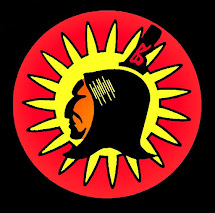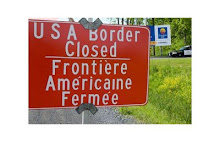Friday, August 23, 2013
“Full Sovereign" – a buzzword for
minority status - The River of Words
Too often I have witnessed, that lip service is given to
issues that are associated with Onkwehonweh (real people) political matters.
Whether coming from elected government representatives or the mainstream media,
the disdain for culturally-based concepts comes across through skin-deep
engagement and coverage. This historical practice remains the same in modern
times.
Under the guise of modern history, the language of diplomacy
has been closely attributed to the French language. The French word “parler”
(verb) means “to speak.” A word with similar origins is the name of the “parliamentary”
form of government.
If a country “parleyed” with another country, the intent was
to conference with another party, particularly as part of a truce, or as an
action between enemies. The classic sign to parley was to raise a black flag by
the summoning party. This is still the internationally recognized signal.
Following this train of thought, within the language of
contemporary politics I have heard that recently the term “full sovereign” is
now being put forth as a public talking point statement by elected representatives
of the United States, in reference to North American Indian nations. The usage
of this phrase raised a black flag with me. This is not a political equal
speaking to another political equal. It is a diplomatic pat on the head.
What are they really saying? Why are they saying this? What
is the benefit to Onkwehonweh, if any?
These words “full sovereign” were spoken recently at the
NIGA Summer Legislation Update meetings to a meeting visitor by a male
Congressman (NIGA stands for the National Indian Gaming Association.) When
questioned on the use of this phrase, the response was from a bewildered-looking
member of the US Congress. The gratuitous value of a “full sovereign” label was
thus exposed.
It is possible that the intended audience for the remarks
(in Washington D.C.) was one of placated, and possibly satisfied, citizens of
the United States. The irony of uttering the words “full sovereign” to a
gathering of Onkwehonweh should have fallen on deaf ears. Yet the hall was
silent as the question of what it meant was muddled in response.
Possibly “full sovereign” made reference to the legal term
“sovereign immunity” that has been employed by elected, federally-recognized
American tribal councils. It is more commonly cited by the historically ensuing
federal governments of the United States and Canada in response to lawsuits by
federally recognized tribes and band councils, to assert their own “sovereign
immunity” in response to the legal challenges. In fact, a common expression of
tribal sovereign immunity is to “waive sovereign immunity” as part of the legal
process. You rarely, if ever, hear the federal governments waive their own “sovereign
immunity.” Evidently, it is poor form to begin to do so, if one believes in
“stick to your guns” sovereign expression.
More likely, “full sovereign” alludes to an interpretation best
displayed in the legal proceedings of the Miccosukee Tribe in their arguments
against the United States Internal Revenue Service. In 2010, Judge Alan S. Gold
of the United States Court of Appeals for the Eleventh Circuit ruled that the
Miccosukee Tribe overstepped their claims of sovereign immunity to efforts by
the United States government to access financial records involving tribal
accounts and elected leadership. Additionally, to display the matter to other
watching tribal governments, the United States was described as a superior
sovereign in comparison to the political status of the Miccosukee Tribe as a “domestic
dependent nation” which the US Congress can limit, modify or eliminate the
powers of local self-government which tribes otherwise possess, “subject to
ultimate federal control.”
The shock and awe of “full sovereign” tribal status labeling
fails all of the political tests that equals employ with each other. Whether spoken in the French language or
through legal briefs, the intent is clear. In the United States, there can only
be one form of government, despite the lack of formal agreements by Onkwehonweh
to accept or endorse that status. There can never be any confusion to the
outcome of such an argument, according to the United States. They will never
parley with inferiors.
Onkwehonweh have to bear this in mind. Tribal governments
funded by big government can be bought off and stifled. The land-based rights
of Onkwehonweh have no buyout price nor can they be discounted. The birthright
of the unborn generations can never be made inferior to any man-made system.
Creation cannot be bought off, today or ever.
Subscribe to:
Post Comments (Atom)













![-[]-[]-/\-[]-[]-](https://blogger.googleusercontent.com/img/b/R29vZ2xl/AVvXsEjLoXmKO8PJVQ5pZ2q7GX7nFKw8H2tb28dxt-o10FUBNtOGszWhWoLB7tgjtMgtISpuSxNW3fcDxfuSS2DqojsdjNJ1lVggyUS374PnzsDbOhk4ukvtTunFQcyfkckZeBzcLbri4LDYN_E/s214/29-03-A-voice-from-the-Akw-.jpg)





No comments:
Post a Comment